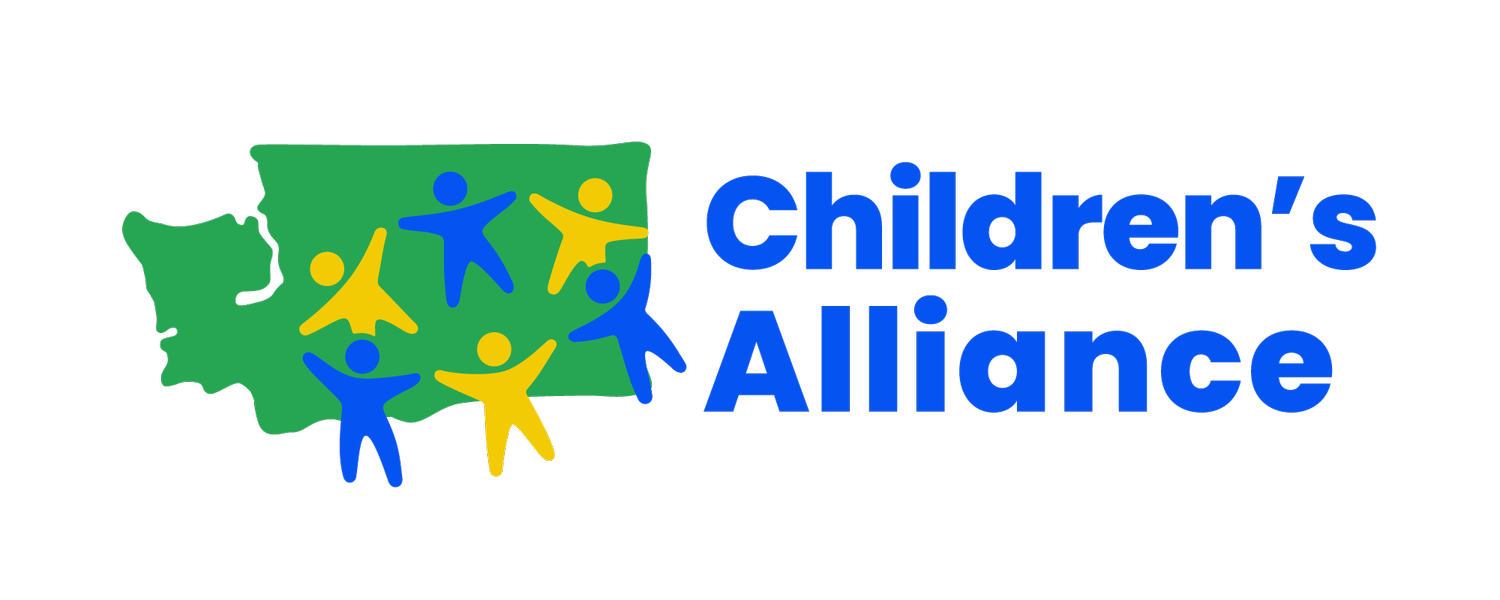LEGISLATIVE SESSION 2024: WEEK 2 RECAP
Week two of the 2024 legislative session is at an end. Here’s a quick recap of the progress some of our top priority bills have made so far:
Early Learning
A number of bills that would have a positive impact for child care providers and, as a result, lead to increased access to child care, are making progress through the Legislature. First, House Bill 2101, which would relieve some financial burden for child care providers by permanently eliminating state licensing fees moved out of the House policy committee and was referred to the fiscal committee for discussions around cost. Second, Senate Bill 5774, which would increase capacity for fingerprint-based background checks and allow early learning providers to work with children more quickly, also moved out of its policy committee and was referred to the fiscal committee. Third, House Bill 1916, which would ensure that the number of children receiving services through the Early Support for Infants and Toddlers (ESIT) program is accurately recorded, and that funding for the program reflects the needs of the community, was voted out of its policy committee and was referred to the fiscal committee. With these bills being referred to the fiscal committee, discussions will shift to focus on the cost of implementation.
Lawmakers also voted two bills out of their policy committees that aim to expand access to critical early learning programs for families. These bills were both related to expanding access to Working Connections Child Care (WCCC) program, which would allow more families to access affordable, high-quality child care. The WCCC program subsidizes child care costs while a parent is working or participating in approved work-related activities. House Bill 2111, which would clarify requirements and expand eligibility for the WCCC program, particularly for parents who are students or are receiving certain other social services, was voted favorably out of its committee. Additionally, House Bill 2124, which would allow a family’s participation in certain no-cost early learning programs like Head Start and the Early Childhood Education and Assistance Program (ECEAP) to satisfy the work requirement for WCCC, was voted favorably out of its committee.
Several bills were also heard by the Senate Committee on Early Learning and K-12 Education. You can view that committee hearing here.
Senate Bill 5870 would streamline eligibility for families receiving food assistance and for families and providers in certain early learning programs.
Senate Bill 5933 would improve funding and count accuracy for ESIT.
Senate Bill 5941 would reorganize eligibility thresholds for subsidized child care.
Health Equity
We were also pleased to see House Bill 2058 move out of committee with a recommendation to pass. No child should go hungry or face stigma for not being able to afford meals at school. This bill would expand upon the free school meals bill passed in 2023 by integrating ALL schools into the program, not just those with high rates of students qualifying for free/reduced lunch.
House Bill 2256 received a hearing and was discussed during executive session this week. This bill changes laws related to the membership, function, and expiration of the Children and Youth Behavioral Health Work Group. Among other things, the bill would delay the group's expiration by one year and add youth representatives to the group to ensure voices of impacted communities are heard.
Economic Justice
Evidence has shown that direct, unrestricted cash benefits provide immediate and universal relief from financial insecurity, housing instability, hunger, and many other issues that our neighbors currently face.
Two promising bills to increase cash assistance for working families saw movement this week. First, House Bill 1045 , which would create a statewide pilot program for guaranteed basic income (GBI), was heard in committee. Second, House Bill 1895, which would simplify the application process for the Working Families Tax Credit (WFTC) moved out of committee with a recommendation to pass.
All four bills aimed at protecting gift card purchasers from corporate greed were heard in committee. Click here to watch the hearings for House Bill 2094, House Bill 2095, Senate Bill 5987, and Senate Bill 5988. If passed, these bills would help return unspent gift card balances to the consumer or, if left unclaimed, transfer revenue to the state to fund vital community programs.
Stay updated on the progress of our policy priorities
Make sure you’re signed up for our action list for the most up-to-date advocacy opportunities and check out our bill tracker and early campaign & administrative advocacy tracker for information on all of the policy areas we're working on this session.
Would you like to get more involved? Please reach out to our mobilization manager Debbie Carlsen for more information: debbie.carlsen@childrensalliance.org.
